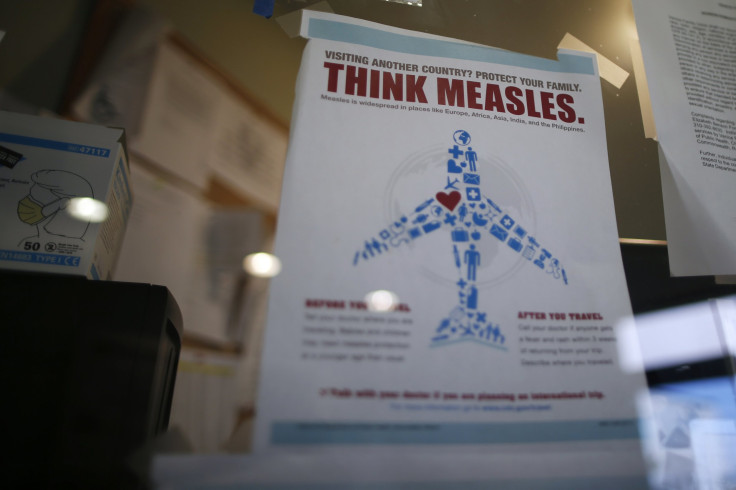California Warns Parents Against Intentionally Exposing Children With 'Measles Parties'

California health officials, on Monday, warned parents not to deliberately expose their children to measles as it could further spread the outbreak in the state. The California Department of Public Health (CDPH) also warned parents not to hold “measles parties,” which could worsen the outbreak.
The department said that it did not have information about the frequency of such parties, but added that the disease, of which 107 cases have been confirmed since the outbreak began in December, is serious, Reuters reported. Measles parties are based on the belief that children will build up immunity to the virus because once they are infected with the disease, they cannot catch it again.
“CDPH strongly recommends against the intentional exposure of children to measles as it unnecessarily places the exposed children at potentially grave risk and could contribute to further spread,” Anita Gore, a department spokeswoman, said in a statement, obtained by Reuters.
The measles virus is dangerous for children under five years of age. In a worst-case scenario, the virus can cause pneumonia, swelling of the brain or death. Although the disease was declared eliminated from the U.S. in 2000 following intensive childhood vaccine efforts for decades, large measles outbreaks have occurred in many countries, including Western Europe, Pakistan, Vietnam and the Philippines in recent years.
Travelers to areas where measles circulates are believed to have brought measles back to the U.S., which, last year, had its highest number of measles cases in 20 years, Reuters reported. According to the Centers for Disease Control and Prevention, there are now 121 confirmed measles cases in 17 states since Jan. 1.
Health officials believe the most recent outbreak is linked to a group of unvaccinated people at a Disneyland theme park in California in December. CDPH said that 39 of the 107 confirmed measles cases have been linked to an initial exposure at Disneyland.
According to a new survey by the Pew Research Center, 83 percent of Americans believe that vaccines for diseases such as measles, mumps and rubella are safe for healthy children, while 9 percent believe them to be unsafe. In January, another study found that 68 percent of U.S. adults believed that childhood vaccines should be made mandatory.
© Copyright IBTimes 2024. All rights reserved.












